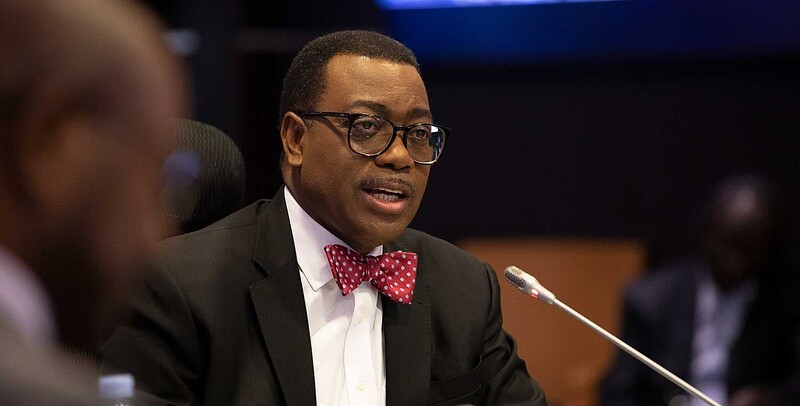Akinwumi Adesina, the President of the African Development Bank, has expressed concern over the negative impact of non-transparent resource-backed loans on African economic potential. These loans not only complicate debt resolution but also compromise countries’ future growth.
Adesina made this statement at the Semafor Africa Summit, which is happening alongside the International Monetary Fund and World Bank 2024 Spring Meetings, according to a bank statement on Wednesday.
Adesina expressed the need for debt transparency and accountability, emphasizing the complications that arise from opaque natural resource-backed loans. He believes it is crucial to address these issues to effectively resolve the debt problem.
Adesina pointed out the difficulties caused by Africa’s growing external debt, which reached $824 billion in 2021. Countries are allocating a significant 65% of their GDP to meet these obligations.
According to him, the continent’s debt service payments this year alone would amount to $74 billion, which is a significant rise from $17 billion in 2010.
Recognizing the financial challenges African nations are currently facing as a result of the COVID-19 pandemic, infrastructure demands, and increasing inflation, Adesina highlighted the importance of tackling the underlying problems in Africa’s debt situation.
He highlighted the transition from concessional financing to higher-cost and shorter-term commercial debt, with Eurobond debt now making up 44 percent of Africa’s total debt, a significant increase from 14–17 percent.
The President of the AfDB also expressed concern over the additional costs that African countries incur when accessing capital markets, despite evidence indicating that Africa’s default rates are lower compared to other regions.
He strongly insisted on changing the risk perception, as it has been causing borrowing costs to rise for African countries.
The World Bank Group recently released a report that highlights the potential for investors in emerging markets. The report provides data that supports the notion that default is a rare occurrence for sovereign borrowers.
Adesina emphasized the significance of establishing a structured and reliable approach to addressing Africa’s debt, urging swift implementation of the G20 Common Framework.
“It is noteworthy that in Africa, the level of concessional financing has decreased significantly,” he remarked.
He states that the African Development Fund, which is the bank group’s lending arm for low-income countries, is offering long-term financing at favorable interest rates to the 37 most vulnerable countries.
Adesina explored different instruments and initiatives utilized by the African Development Bank to mitigate risks and appeal to institutional investors. These include partial credit guarantees, hybrid capital, and synthetic securitization.
He expressed a positive outlook for the future, specifically in Africa, where he sees great potential in renewable energy, especially solar power.
In addition, he emphasized the Africa Investment Forum, a platform established by the bank and its partners to unite investors from across the globe. Its purpose is to streamline significant investments in crucial sectors such as infrastructure, digital, and renewable energy.
Adesina concluded by highlighting the African Development Bank’s dedication to fostering a conducive environment for investments to flourish, asserting that Africa is the premier investment destination globally.
The Semafor Summit session, titled “Rising Global Middle Class: Is Rising Developing Nation Debt a Blessing or a Curse?” gathered a diverse group of participants to discuss the growing debt challenges that developing countries are grappling with due to escalating borrowing costs.
Notable participants in the event included Xavier Becerra, the U.S. Secretary of Health and Human Services; Raj Shah, the President of the Rockefeller Foundation; Andrew Steer, the President and CEO of the Bezos Earth Fund; and Brent Neiman, the Assistant Secretary for International Finance at the US Treasury.
